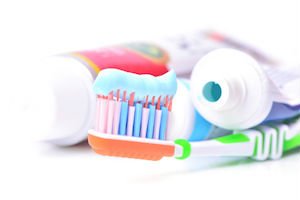Effects of Sports Drinks on Athletes’ Oral Health
Keeping your body healthy is crucial as an athlete. Successful performance demands dedication to training, eating well, and staying hydrated. Although it seems obvious that athletes must consistently care for their bodies, many overlook a crucial part of their health – their teeth.
Maintaining Oral health is as important as strengthening the body for athletic performance. Rising rates of dental problems in active people – from as young as preschool to older adults have caused concern for dental professionals. Sports drinks can cause 3 times more damage to teeth than soda. Even though consuming sports drinks can help improve your performance, it’s important to weigh the risks you are taking to your oral health, too. Here are some crucial facts about the sports drinks:
The most commonly reported dental problems among athletes were tooth decay, gum disease, enamel erosion, and infected wisdom teeth.
Tooth decay – The sugar found in sports drinks adhere to the teeth more than saliva and promote acid production for the oral bacteria, putting you at a higher risk for decay. The enamel and dentine of teeth are weakened and broken down by acids of a pH lower than 5.5. Many sports drinks and intra-workout supplements contain citric acid or malic acid with a pH between 2.4 – 4.5. Instead of gulping down a quick sports drink, athletes often take frequent sips during their workouts, exposing their teeth to harmful levels of acidity and sugar. Because dehydration is a common issue among athletes, having a dry mouth and a decreased salivary flow makes them more vulnerable to tooth decay.
Advice for athletes
Dentists urge athletes to use sports drinks in the following fashion:
• Use sports drinks in moderation, also use fruit juices or soft drinks in moderation because they have the same potential to erode teeth. Water is the best drink for light workouts in which less body fluids are lost.
• Dilute sports drinks with water.
• If possible, use a straw to reduce contact between the drink and teeth. Do not hold the drink in your mouth or swish it around.
• Do not brush your teeth immediately after consuming a sports drink. The acid in sports drinks makes teeth softer and brushing can cause protective enamel to be lost.
• Talk to your dentist about preventative care for your oral health. Find out a healthy hydration regimen for your work out.
You can protect yourself by skipping energy drinks and instead drink water and replenish your electrolytes naturally through foods, such as bananas, peanut butter, seaweed, leafy greens, melons, milk, beans, and whole grains. Contact Expressions Dental to learn more.


